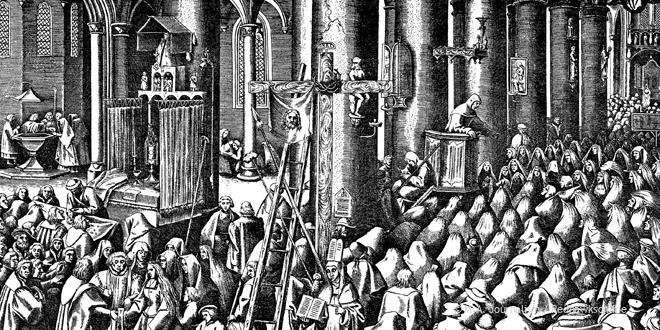The blazing Middle East sun scorches the backs of a group of men, huddled along a dusty dirt road. The straps of their sandals are worn and their bodies are weary, but their eyes are alive with their leader’s teachings. He stands at the head of the group, describing an aspect of sin.
“Things that cause people to stumble are bound to come, but woe to anyone through whom they come,” he says, his voice rich in both tone and wisdom.
The men believe in the words of their rabbi, but the weight of the day presses on their shoulders. They desperately crave more of this belief. Suddenly, a sharp cry rises from the group: “Increase our faith!”
Their teacher pauses for a moment, eyes filling with something unknown.
He replies, “If you have faith as small as a mustard seed, you can say to this mulberry tree, ‘Be uprooted and planted in the sea,’ and it will obey you.”
The desire for a strong faith to lean into and fall back on was something that even Jesus own disciples struggled with, as we can see in the New Testament book of Luke, chapter 17. As human beings, we all have a natural desire to put faith into something, whether it be religious or not. Faith is confidence or trust in a person or thing, and as it says in Hebrews 11:1 “Faith is being sure of what we hope for and certain of what we do not see.”
Faith is one of the three theological virtues, along with Hope and Charity, or Love. In the early church and Catholic church today, these virtues are believed to be attained only by the power of the Holy Spirit and the grace of God, unlike the four cardinal virtues, which any individual can practice or acquire. According to Loyola Press, which has published several books on the virtues, “the three most important virtues are called theological virtues because they come from God and lead to God.”
This statement implies that faith is both a gift from God and something that draws us to him. The life of a Christ-follower is often riddled with nagging doubts and uncertainty, so the desperate desire to simple have more faith is common. However, with this virtue, a little goes a long way.
As mentioned in multiple parables of Jesus, faith is commonly associated with the image of the mustard seed. Through this visualization, Jesus taught that you don’t always need more faith. You need only to have faith the size of a mustard seed, one of the smallest seeds on earth, to do wondrous things with God.
Interestingly, mustard seeds were considered invasive weeds in the Middle East during Jesus’ time, and even up until today. “Mustard plants are easy…to grow; they flourish on many different types of soil, suffer from unusually few insect pests or plant diseases and tolerate extremes of weather without serious harm,” according to Britannica Online. The seed starts out very tiny, much smaller than a pea. However, that small seed grows into a large tree spreads its branches far and wide.
With the image of the mustard seed, Jesus plants a bit of hope in the hearts of his followers. I would say that faith leads to hope, another theological virtue, and oppositely, hope leads to faith. When things are dark, a personal faith in Jesus can provide hope for our lives. Inversely, having hope of a future filled with light will only lead to greater optimism and confidence in the faith.
In our world today, Christians are scattered all across the globe, like mustard seeds sprinkled in a field. We live amidst sin, darkness, evil: a fallen race. But as Jesus teaches, Christ-followers are seeds that can flourish in rough terrain and tolerate harsh conditions. We don’t need to have more faith to grow. We simply need to let the faith that we already have take root in the rocky soil.

